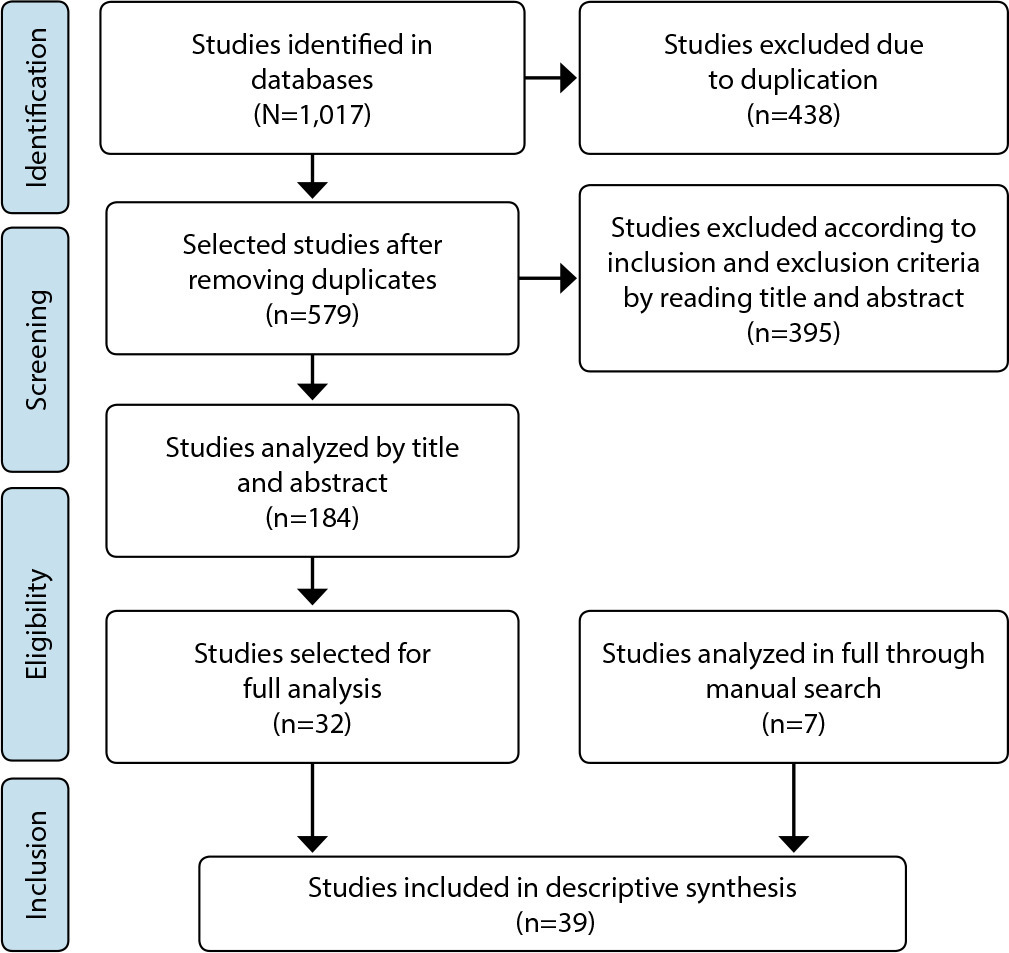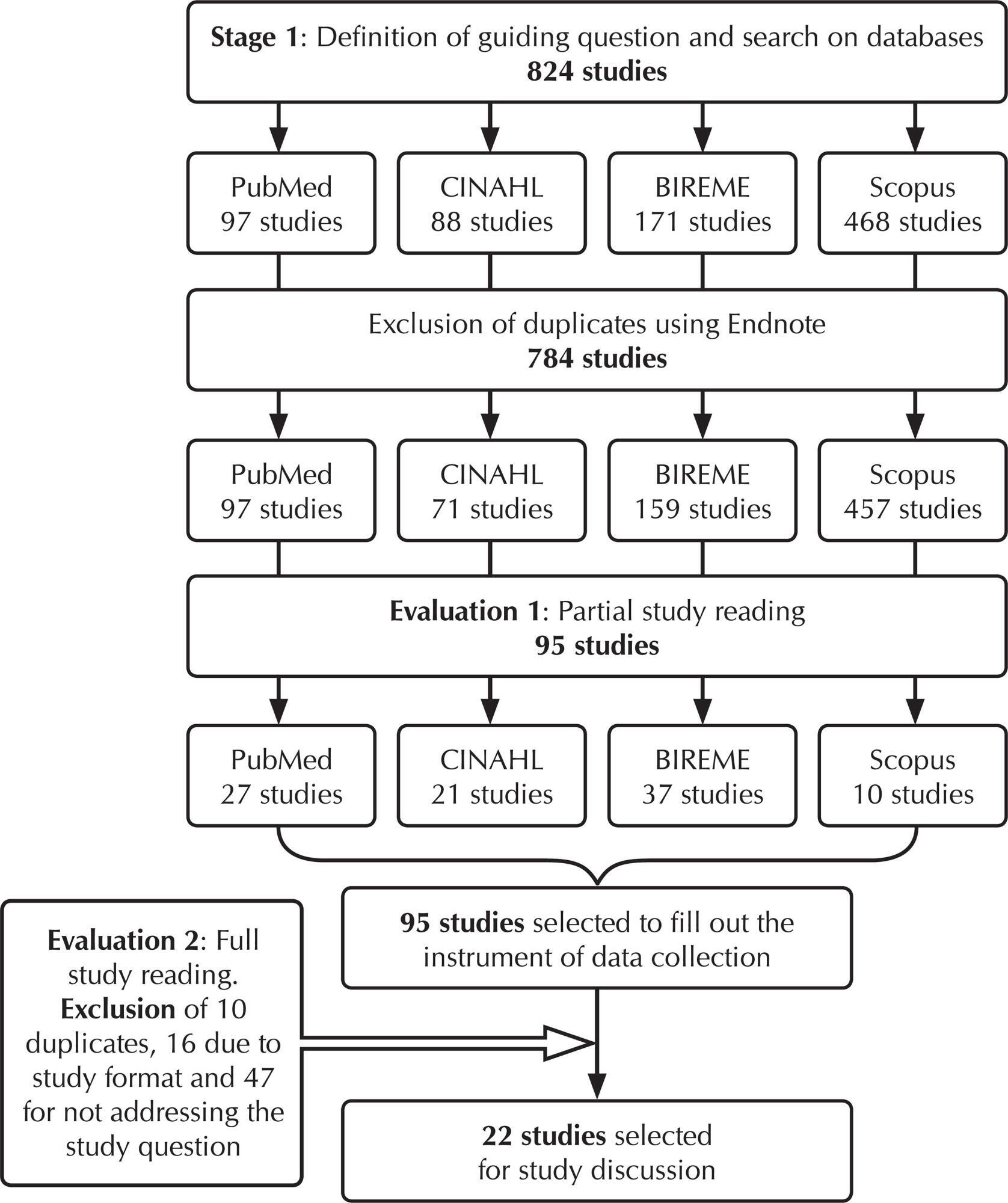-
ORIGINAL ARTICLE
Expansion of Psychosocial Care Centers and their relationship with health and human rights
Revista Brasileira de Enfermagem. 2023;76(4):e20220662
10-09-2023
Abstract
ORIGINAL ARTICLEExpansion of Psychosocial Care Centers and their relationship with health and human rights
Revista Brasileira de Enfermagem. 2023;76(4):e20220662
10-09-2023DOI 10.1590/0034-7167-2022-0662
Views0See moreABSTRACT
Objective:
To analyze the factors associated with the expansion of the number of Brazilian Psychosocial Care Centers (CAPS) considering aspects related to the general health scenario and the institutionalization of human rights.
Methods:
An analytical document-based study, developed between February 2020 and May 2022, whose secondary data on the 27 Brazilian capitals were collected on platforms in the public domain, based on the time series from 2015 to 2020. Indicators were listed based on health system infrastructure and quality of life. For data analysis, descriptive statistics, Pearson’s correlation test and Student’s t test were used.
Results:
The capitals that expanded the number of CAPS in the analyzed period were the ones that presented the greatest political-legal framework for the protection of human rights.
Conclusion:
The results suggest that the greater the commitment of governments in favor of human rights, the greater the investment for CAPS expansion.

-
REVIEW
State of the art on Advanced Nursing Practice: reflections for the agenda in Brazil
Revista Brasileira de Enfermagem. 2022;75(5):e20220151
08-15-2022
Abstract
REVIEWState of the art on Advanced Nursing Practice: reflections for the agenda in Brazil
Revista Brasileira de Enfermagem. 2022;75(5):e20220151
08-15-2022DOI 10.1590/0034-7167-2022-0151
Views0See moreABSTRACT
Objectives:
to review the state of the art on Advanced Nursing Practices.
Methods:
a scoping review of existing publications up to 2020, in the PubMed/MEDLINE, SciELO, LILACS, BDENF, Web of Science and Scopus databases, identified by descriptors “Prática Avançada de Enfermagem” or “Advanced Practice Nursing”. A total of 184 documents were selected. The characterization of this study was carried out, followed by the construction of an overview of different regions of the world.
Results:
studies showed an increasing trend in the last decade, being present in all continents, although 43.5% correspond to opinion articles, comments, editorials and event reports. Even with similar aspects, the justifications for Advanced Nursing Practices reflect specific regional needs.
Final Considerations:
the studies still lack methodological variety and emphasis on the specificities of countries and their health systems, in addition to greater detail on labor regulation, professional training and the impacts of these practices in nursing.

-
REFLECTION
Universal health system based on Primary Care and advanced practice nursing
Revista Brasileira de Enfermagem. 2022;75(5):e20210403
05-09-2022
Abstract
REFLECTIONUniversal health system based on Primary Care and advanced practice nursing
Revista Brasileira de Enfermagem. 2022;75(5):e20210403
05-09-2022DOI 10.1590/0034-7167-2021-0403
Views0ABSTRACT
Objective:
To reflect on advanced practice nursing in Primary Health Care considering the complexity of the Brazilian health system.
Methods:
Reflective study, based on the document “Expanding the role of nurses in Primary Health Care” and anchored in the literature and critical analysis of the authors.
Results:
Due to the complexity of the Unified Health System — in terms of infrastructure, human resources, funding — it is important for Brazil to carry out its own systematic process of discussion on the implementation of advanced practice nursing, considering the context of the current health care model, to define the role of this practice according to the characteristics of a universal health system and not a universal health coverage. Final considerations: The expansion of the workforce and the insertion of advanced practice nursing in Brazilian Primary Health Care needs to happen with greater recognition and incentives for the actions performed at this level of care. For example, they must occur through integration between professionals and the community in health promotion actions, with the availability of appropriate technologies for the work, in order to guarantee the quality and resolution of Primary Health Care.
Keywords:Advanced Nursing PracticeHealth SystemsPrimary Health CareUnified Health SystemUniversal Health CoverageSee more -
RESEARCH
Social representations of undergraduates about the education through work for health program
Revista Brasileira de Enfermagem. 2018;71(2):244-251
01-01-2018
Abstract
RESEARCHSocial representations of undergraduates about the education through work for health program
Revista Brasileira de Enfermagem. 2018;71(2):244-251
01-01-2018DOI 10.1590/0034-7167-2015-0168
Views0See moreABSTRACT
Objective:
analyze the social representation of undergraduates from the health area in which were scholars of PET-Saúde of the UFRJ-Macaé Professor Aloísio Teixeira Campus about this program and its contribution to the respective professional training.
Method:
This is an exploratory, descriptive study, with a qualitative approach. A total of 38 undergraduates participated, and a professional socioeconomic questionnaire and semi-structured interview were used to collect data. To analyze the data, thematic content analysis was used.
Results:
The results showed that PET-Saúde integrates undergraduates, health professionals and community, seeking the interdisciplinarity and the interrelation of those involved, articulating the scientific knowledge with the common sense for the transformation of the health service.
Conclusion:
The program encourages population's empowerment and the critical, reflexive thinking of undergraduates and professionals about the health-disease process and acts as a source of transformations in the training of health professionals in response to the demands of the Unified Health System (SUS).
-
REVIEW
Integrative literature review: access to primary healthcare services
Revista Brasileira de Enfermagem. 2018;71(3):1178-1188
01-01-2018
Abstract
REVIEWIntegrative literature review: access to primary healthcare services
Revista Brasileira de Enfermagem. 2018;71(3):1178-1188
01-01-2018DOI 10.1590/0034-7167-2017-0441
Views0See moreABSTRACT
Objective:
Analyze the scientific production that describes the type of access to primary healthcare services and identify specific populations that have differentiated access to health services.
Method:
An integrative review. For study selection, the following databases were used: PubMed, Scopus, Bireme, and Cinahl. The sample included 22 national and international articles.
Results:
The results describe the access of specific populations to health services, the access to primary care through health plans and proposed improvements to the access to primary care.
Conclusion:
The access to services is a challenge in many countries and some strategies and policies are implemented to solve and improve primary health care.

-
RESEARCH
Integrality of care: challenges for the nurse practice
Revista Brasileira de Enfermagem. 2017;70(3):504-510
01-01-2017
Abstract
RESEARCHIntegrality of care: challenges for the nurse practice
Revista Brasileira de Enfermagem. 2017;70(3):504-510
01-01-2017DOI 10.1590/0034-7167-2016-0380
Views0See moreABSTRACT
Objective:
to understand the role of the nurse in the collegiate management model of a teaching hospital, in the integrality of care perspective.
Method:
a single case study with multiple units of analysis, with the theoretical proposition "integrality of care is a result of the care offered to the user by multiple professionals, including the nurse". Data were obtained in a functional unit of a teaching hospital through interviews with 13 nurses in a non-participant observation and document analysis.
Results:
from the analytical categories emerged subcategories that allowed understanding that the nurse promotes integrality of care through nursing management, team work and integration of services.
Final considerations:
the theoretical proposition was confirmed and it was verified that the nursing management focus on attending to health care needs and is a strategy to provide integrality of care.



